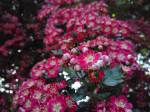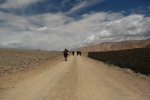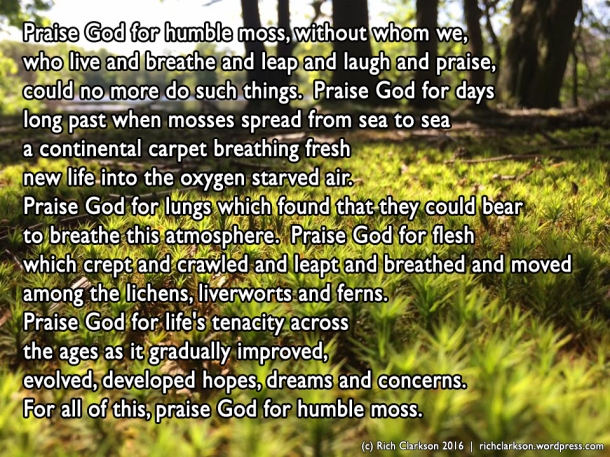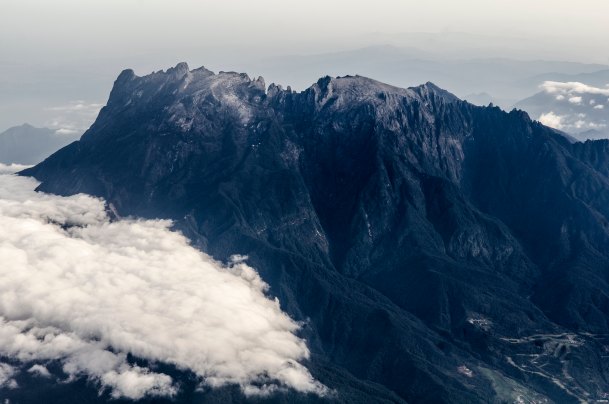
At the edge of the Rectory lawn a Hawthorn stands in silence. Compared to her lofty neighbours – Oak, Ash, Beech, Sycamore – she cuts a diminutive figure and as they welcome the return of the springtime sun by trying to outdo one another in their green-ness, she quietly dresses herself in muted tones to complement her rich, dark thorns.
I wouldn’t like to guess her age, and she wouldn’t tell me I’m sure, but the lightning scars which wend their way around her body speak of a life well lived. Her branches hang loose and carefree down her northern flank. Wisely she no longer tries to compete with the Beech beside her for the best of the sunlight but she gets what she needs and she’ll see another season through.
She spends most of the year watching over the garden, occasionally offering the Buzzard respite from the relentless onslaught of crows or providing the barefoot children with a fortress from which to fire their water pistols. However, for just a few days between the golden daffodils and the vibrant bluebells the Hawthorn sets aside her usual demure attire and dons a vibrant red blossom dress to attract and seduce the murmuring hordes of pollinators who are helpless to resist her experienced charms.
And as I look, astonished by her transfiguration, I too am rendered speechless in the face of such holy beauty. As the poet Mary Oliver once said, “Sometimes I need only to stand wherever I am to be blessed.” After a day of tears, this is a blessing I sorely needed.
* * * * *
The natural world – though that is too crude a phrase to truly do justice to the wild complexity of all that it endeavours to encompass – has a seemingly infinite capacity to astonish, to delight, to bless those whose eyes are open. And in doing so they can reveal to the world the one who is the beginning and the end of all things. In the days when God’s people could hardly dream of holding a Bible in their hands, let alone read it, they could see and hear and smell and taste and feel the fingerprints of their creator in the world around them.
It is not hard to imagine King David, long before the mantle of leadership was ever dreamt of, lying out on the hillside and gazing up at the stars, singing gently to his flock “The heavens declare the glory of God, the skies proclaim the work of his hands”.
Or to picture Paul, sat on the harbour wall in Corinth looking out across the sea to the mountains beyond and making a mental note to remind the church in Rome that “since the creation of the world God’s eternal power and divine nature, invisible though they are, have been understood and seen through the things he has made.”
* * * * *
In Constantinople in the seventh century, as the age of antiquity gave way to what we now disparagingly call the dark ages, a young man named Maximus was leaving the life of a courtier behind to follow God’s calling into the wilderness. Taking with him nothing but his vast intellect, he settled as a monk in North Africa where he began to pit his wits against the religious leaders of the day.
He wrote prolifically, taking the wisdom of the first half millennium of Christian thought and distilling it into something coherent and so devastatingly potent that his enemies cut off his hands and tongue in order to silence him. Time would vindicate him, however, and his reputation soon grew to match his output.
Maximus came to understand that the essence of every created thing, its unique purpose and identity, is given to it by the creator who is the beginning and the end of all things. Every part of God’s creation can, by its very being, reveal something of the creator. An eagle echoes God’s majesty. A mountain echoes God’s patience. A hawthorn, for a few days a year, echoes God’s breathtaking beauty.
As Maximus put it, Christ “ineffably concealed himself in each visible thing”. A thousand years later the poet Gerard Manley Hopkins would say that each creature “acts in God’s eye what in God’s eye he is – Christ. For Christ plays in ten thousand places”.
* * * * *
It was a shock when we had to close the Church buildings. Between one Sunday and the next we had become a dispersed Church, kept apart from one another by the threat of an unseen virus. The plans that we had made for Holy Week, Easter, Pentecost, were all thrown out of the window.
“The building may be closed but the Church is still active” our posters proclaimed, but it didn’t always feel like that. We were grieving, although we couldn’t necessarily put into words what we had lost. What would sustain us in our faith now that we could no longer gather around the scriptures, around the communion table?
And yet somehow we were sustained. We found ways to share the scriptures, if not the bread and wine, and despite our newly fragmented status we were sustained by one another. But above all, and perhaps most surprisingly, we were sustained in our faith by the blessing of Spring.
As the human world closed down, the non-human world was exploding with new life and now more than ever we had the time to notice it. It seemed, for those with eyes to see, that God was reminding us of Jesus’ command to consider the birds of the air and the flowers of the field and we did and we found there the fingerprints of our Creator.
* * * * *
A few days later I passed the hawthorn again. The red blossom dress which had so captivated me before had melted away and she was back to her old, unassuming self. And yet I knew that I was changed by the encounter, that I had been sustained by her beauty at a moment when I had needed that grace more deeply than I could know.
And so I offered a silent prayer of thanks to the creator whose heavenly beauty shone through the red blossom dress, and for the blessing that I had received simply by standing where I was and opening my eyes.
“Earth’s crammed with heaven
and every common bush afire with God,
but only he who sees takes off his shoes.
The rest sit around and pluck blackberries.”
– Elizabeth Barrett Browning.
Rich Clarkson, June 13th 2020








